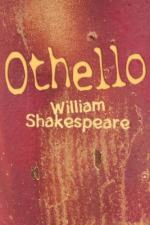|
This section contains 9,165 words (approx. 31 pages at 300 words per page) |

|
SOURCE: “Obeying the Time in Othello: A Myth and the Mess It Made,” in English Studies, Vol. 73, No. 3, June, 1992, pp. 211-28.
In the following essay, Bradshaw explores whether Othello consummates his marriage to Desdemona, examining the element of timing in the play.
Although it is factitious and distracting, the theory or myth of ‘double time’ is still respectfully trundled out in every modern scholarly edition of Othello, even the most recent.1 It has been as long-lived as Nahum Tate's adaptation of King Lear, which held the stage for a century and a half, and, like that adaptation, deserves to be firmly laid to rest. It betrays its bad nineteenth century provenance in three different (though related) ways. First, it expects Shakespearean poetic drama to repay an approach which (as C.P. Sanger's examination of the handling of time in Wuthering Heights famously showed) is more appropriate to mid-nineteenth...
|
This section contains 9,165 words (approx. 31 pages at 300 words per page) |

|


